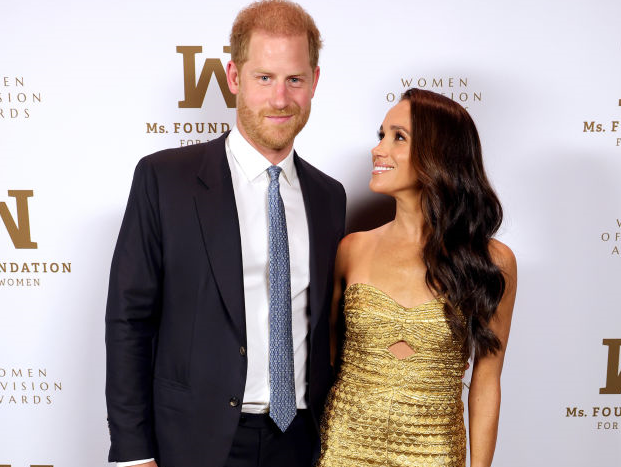
It is ironic that Prince Harry moved to the US partly to escape the British press.
The paparazzi pursuit of royals has long ago stopped being a feature of UK public life. And high-profile figures have less right to privacy in the US than they do in the UK, thanks to the First Amendment.
But that said, British newspapers are partly to blame for encouraging the paparazzi pursuit of Harry, Meghan and her mother around Manhattan on Tuesday night by helping to create a market for the images.
A convoy of photographers followed the Duke and Duchess of Sussex around New York for two hours in what their spokesperson described as “near catastrophic” circumstances.
While recollections may vary about the exact nature of the incident, the fact remains that little was to be gained by the activities of the photographers (given the Sussexes had already been pictured arriving at and leaving an awards ceremony by numerous reputable agency photographers).
Mail’s 1997 ‘no paparazzi’ pledge
On 8 September 1997, eight days after the death of Princess Diana, the Daily Mail published a front-page promise: “The proprietor of the Daily Mail, Mail on Sunday and Evening Standard announced last night that his papers will not in future purchase pictures taken by paparazzi.
“Viscount Rothermere, chairman of the Daily Mail and General Trust plc said: ‘I am, and always have been, an admirer of Diana, Princess of Wales, and nagged my editors to protect her so far as they could against her powerful enemies.
“In view of Earl Spencer’s strong words and my own sense of outrage, I have instructed my editors no ‘paparazzi’ pictures are to be purchased without my knowledge.'”
Paparazzi images have been used since by the paper. And this week Mail Online was among various UK titles to use images taken by Backgrid Pictures, the main agency which t followed Harry and Meghan around New York. The images have since been taken down by the Mail and other titles.
Why Harry and Meghan avoid paparazzi treatment in UK
Under the Editors’ Code, to which all UK tabloids subscribe: “Journalists must not engage in intimidation, harassment, or persistent pursuit and should not persist in questioning, telephoning, pursuing, or photographing individuals once asked to desist. If there is valid public interest in pursuing a story, then the Editors’ Code of Practice allows for persistence.”
That is one of the reasons why Harry and Meghan did not get this sort of treatment in the UK.
On a weekly basis, IPSO asks editors to stop contacting high-profile individuals who have asked to be left alone.
Given the history, and the risks caused by uncredentialed photographers engaging in pursuit of celebrities, UK publications should have rules in place to ensure they do not use their work.
If a photographer did cause an accident whilst following Prince Harry any UK publications buying their work would be jointly to blame.
UK journalism is still paying the price for the loss of trust it suffered after chasing French paparazzi contributed to the set of circumstances which led to the deaths of Princess Diana, Dodi Fayed and driver Henri Paul.
At the time there was a culture of outsourced illegality on Fleet Street with some editors giving scant regard to the provenance of pictures and information. The future of professional journalism in the digital age may well depend on its ability to prove that publishers provide the world with quality information that is ethically sourced.
Legislators in the UK, US and Canada and currently trying to find a way to force Google and Facebook to provide financial support for the news industry. The case for doing that will be impossible to make if publishers can’t rise above the online mire and hold themselves to a higher standard.
Email pged@pressgazette.co.uk to point out mistakes, provide story tips or send in a letter for publication on our "Letters Page" blog
